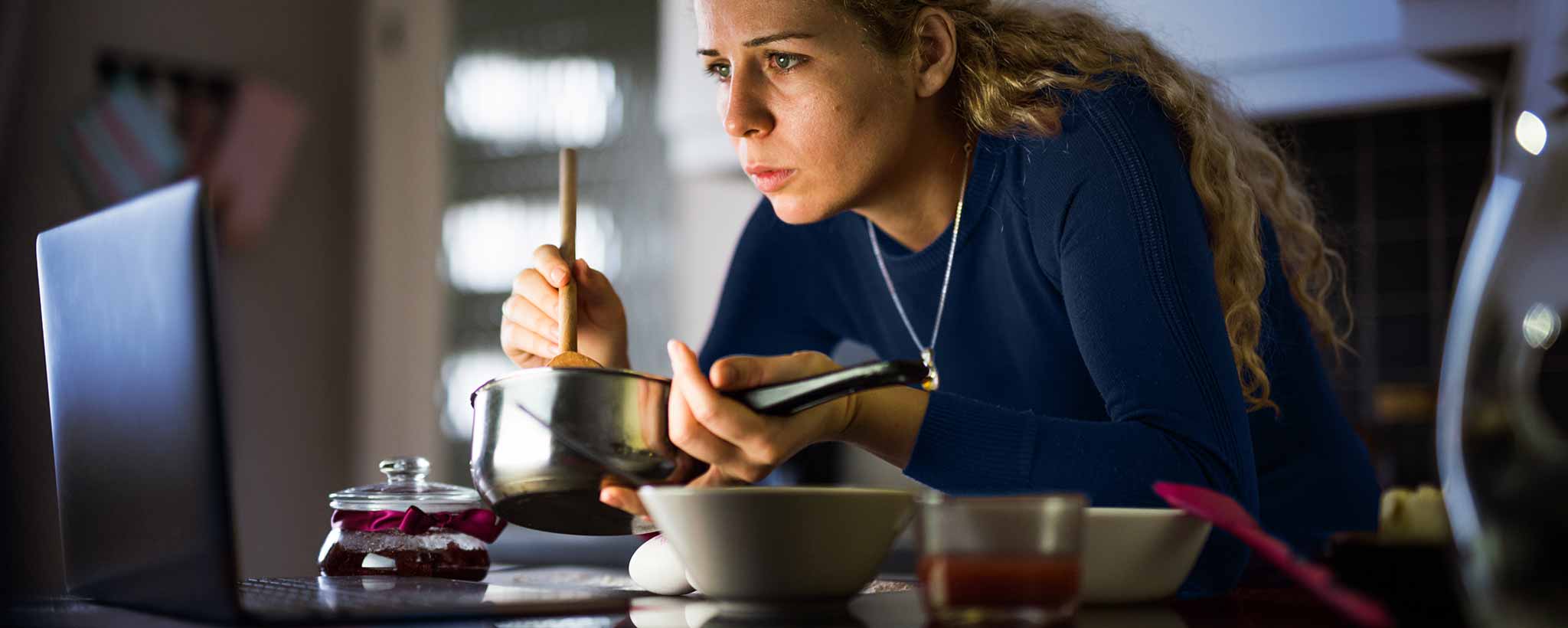Despite health benefits of passing gas, there are times when it is inappropriate. Here are ways to prevent embarrassment.
Excuse Me
Everyone flatulates—some more than others. It is a natural byproduct of the digestive system process, occurring 14 or more times per day as wastes putrefy. You may want to consider intervention by a medical doctor or nutritionist if you are exceeding 25 times daily. Despite normalcy, expelling gas around others can be embarrassing or considered rude.
“Eating foods that cause gas is the only way for the microbes (good bacteria) in the gut to get nutrients,” according to Purna Kashyap, a gastroenterologist at the Mayo Clinic in Rochester, Minnesota. So not only is it inevitable, but passing wind is beneficial.
What Keeps Gas In?
Gas gets into the digestive tract primarily through two routes: Swallowing air (which differs from breathing) and your microbiome. Sipping through a straw, particularly when the beverage runs out, is one way to swallow air. Eventually, it must come out to prevent distended intestines from popping like a balloon. A gastrointestinal obstruction is a life-threatening emergency.
Notwithstanding atypical gastroenterology conditions like diarrhea, IBS, Crohn’s disease, or IBD, several anatomical features reduce the amount of flatulence. Intestinal length (small bowels about 20 feet; large bowels about 5 feet) and elasticity can keep gas within your abdomen for hours.
The combination of putrefaction, diaphragm contractions, intestinal anatomy, and gravity works together to eliminate wastes. Gas builds up quickly as wastes pass through the descending colon. In the large intestine, strong, wave-like movements help to push the contents towards the anus.
When fecal matter reaches the rectum, autonomic nerves signal the need to defecate. At this point, keeping gas (and stools) in requires sphincters on both ends of the rectum and gluteal muscles to constrict. The longer you hold it in, the more it builds up—and the worse it may sound. Time, mass, and gravity eventually win out. You can even continue to flatulate post-mortem.
Preventing Awkward Moments
Ride sharing, bending over in a yoga class, working in a shared office, standing at a counter providing customer service, speaking in front of an audience, or sitting within a group are inopportune times to vent gas. Keeping it in requires planning.
Before stepping into the spotlight, evacuate your bowels. This is the most effective way to prevent surprise flatulence. If there is no time for defecation, take a walk outside and expel as much gas as possible.
Be aware that the force of gas can loosen and expel residual particulates within the rectum. Hence, this might create the need to wipe with a tissue. For this reason, among others, going commando is ill-advised.
Make wise food choices. Certain foods like beans, lentils, and some brassica vegetables like cabbage or Brussels sprouts can produce more gas than usual. Rancid meat or vegetables causes several digestive issues, including gas. Fresh whole foods—including fiber—slow digestion. Avoid overeating, since this exerts more pressure on the colon.
Sulfer-Producing Foods
- Apples
- Artichokes
- Asparagus
- Beer
- Broccoli
- Brussels sprouts
- Cabbage
- Carbonated drinks
- Cauliflower
- Kale
- Peaches
- Pears
Probiotics, often called “friendly bacteria,” can help create an optimal balance of bacteria within your intestines. The reduction in excessive gut fermentation may be effective in reducing intestinal gas. Probiotics are within foods like yogurt and kimchi. You can also consume probiotics as pills or liquid supplements.
If you are lactose intolerant, a sugar within dairy products can upset the digestive tract, causing excessive gas and abdominal discomfort. Lactose intolerance is due to the lack of the enzyme lactase in the small intestine to break lactose down into glucose and galactose.
Some dairy products include lactase, or you may buy it separately to add to your dairy. Lactose intolerance differs from milk allergy—an adverse immune reaction to one or more proteins within cow’s milk. Milk allergy can cause anaphylaxis.
Add a tablespoon of apple cider vinegar to a 4-ounce glass of water. Drink it before meals to prevent gas bloating and discomfort. Rinse your mouth with water afterwards since vinegar can erode tooth enamel.
Simethicone (Gas-X®) is an over-the-counter anti-flatulent drug that reduces the number of gas bubbles within the stomach and intestines. Beano®, taken prior to a gaseous meal, contains a natural digestive enzyme called alpha-d-galactosidase. This helps make food easier to digest.
Reduce the amount of air you take into your stomach. This is done partly by avoiding carbonated drinks or chewing gum. Sip beverages instead of using a straw.
After gastroenterology surgeries, patients are not discharged until they pass gas. This is an indication that the digestive tract is working properly.
These suggestions should help minimize embarrassing situations. Since it is a natural process, do not hold back from breaking wind in private, well-ventilated areas. Let it out. You will feel better.
To support the writing of useful articles about gastroenterology, ClinicalPosters sells human anatomy charts, scientific posters, and other products online. You may sponsor specific articles, become a ClinicalNovellas Member, or remit a small donation.
ClinicalPosters sells human anatomy charts, scientific posters, and other products online to offset expense of the writing useful articles about gastroenterology. Slide extra posters into DeuPair Frames without removing from the wall.
Show your support by donating, shopping for ClinicalPins, becoming a ClinicalNovellas Member, or leaving an encouraging comment to keep the research going.
To support the writing of useful articles about gastroenterology, ClinicalPosters sells human anatomy charts, scientific posters, and other products online. You may sponsor specific articles or remit a small donation.
ClinicalPosters sells human anatomy charts, scientific posters, and other products online to offset expense of the writing useful articles about gastroenterology. Slide extra posters into DeuPair Frames without removing from the wall.
ClinicalPosters sells human anatomy charts, scientific posters, and other products online. You may remit a small donation or become a ClinicalNovellas Member.
You can support the writing of useful articles about gastroenterology by sponsoring specific articles, becoming a ClinicalNovellas Member, or remitting a small donation. Visible content is optimized for device size.






 Romance & Health Intertwine. Fall in love with a captivating romance miniseries that explores the essence of well-being. Become a ClinicalNovellas member for heartwarming tales.
Romance & Health Intertwine. Fall in love with a captivating romance miniseries that explores the essence of well-being. Become a ClinicalNovellas member for heartwarming tales.




